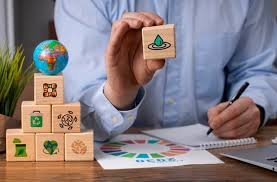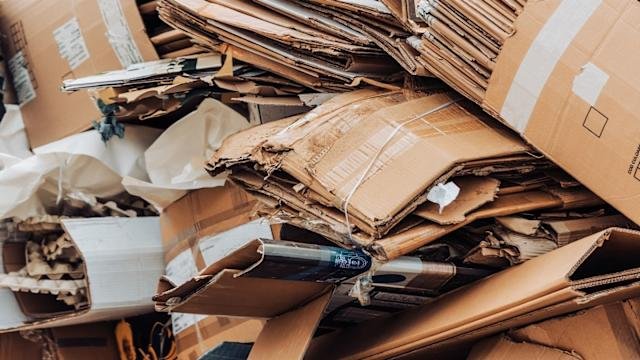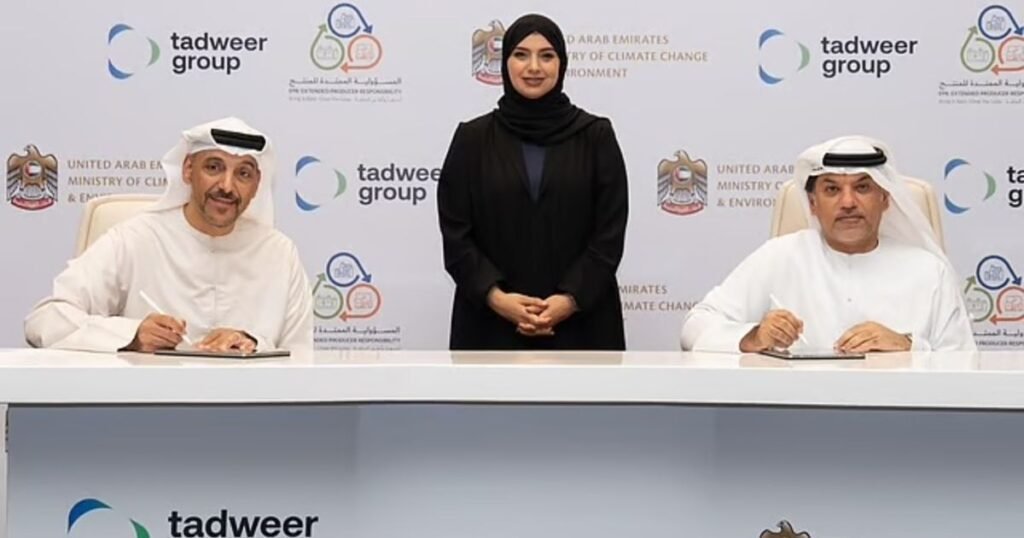In a powerful step towards a more sustainable future, the United Arab Emirates has officially launched its first pilot Extended Producer Responsibility (EPR) program for packaging in its two most prominent cities — Dubai and Abu Dhabi. This initiative marks a fresh chapter in the nation’s ongoing efforts to champion environmental protection, smart waste management, and corporate accountability.
The move reflects the UAE’s commitment to achieving its ambitious sustainability goals while ensuring businesses play a responsible role in reducing the environmental footprint of their products. By introducing this pilot program, the country is joining a growing list of global economies embracing EPR models to create a cleaner, greener world for future generations.
What is Extended Producer Responsibility (EPR)?
Extended Producer Responsibility is a simple yet transformative concept. It places the onus on producers, manufacturers, and importers to take responsibility for the entire lifecycle of their products — especially the post-consumer stage. Under EPR, producers are accountable for the collection, recycling, and environmentally responsible disposal of packaging materials once the product has been consumed.

In practical terms, it means that companies who put packaged goods into the market are now being asked to manage the waste their products generate. This not only reduces the burden on municipal waste systems but also motivates businesses to innovate more eco-friendly packaging options.
Why the UAE’s EPR Pilot Program Matters
The UAE has been making consistent progress in the field of environmental conservation, but packaging waste remains a significant challenge, especially in urban hubs like Dubai and Abu Dhabi. As the country continues to experience rapid urbanisation, population growth, and consumer demand, the volume of packaging waste has increased sharply over the years.

This pilot program is designed to address this pressing issue in a strategic, efficient, and responsible manner. By involving businesses directly in waste management solutions, the program aims to reduce landfill pressure, boost recycling rates, and contribute to a more circular economy where waste is seen not as a problem, but as a resource.
The initiative is a vital part of the UAE’s national goal to divert 75% of waste from landfills by 2025 — a target that aligns with the country’s vision for a sustainable, environmentally responsible future.

How the Pilot EPR Program Will Work
Initially rolled out in Dubai and Abu Dhabi, the pilot program will engage a select group of companies operating within sectors that generate high volumes of packaging waste. These include industries like food and beverage, retail, and consumer goods.
Participating companies will be responsible for:
- Tracking the amount and type of packaging they introduce into the market
- Financing the collection, sorting, and recycling of used packaging
- Submitting reports on their waste management activities
- Collaborating with certified waste management and recycling operators
This structured and transparent approach ensures that producers actively contribute to waste reduction and resource recovery, while also setting the stage for broader nationwide implementation in the future.
Government and Business Collaboration
One of the program’s standout aspects is its collaborative nature. The UAE government is working closely with the private sector, offering guidance, resources, and a regulatory framework to support businesses in meeting their new obligations.
The Ministry of Climate Change and Environment (MOCCAE), along with the Environment Agency – Abu Dhabi (EAD) and Dubai Municipality, are spearheading the program, ensuring that participants are equipped with the knowledge and tools necessary for successful compliance.
This public-private partnership model is a promising example of how environmental challenges can be addressed through teamwork, innovation, and shared responsibility. It also reinforces the UAE’s reputation as a forward-thinking, progressive nation with a firm commitment to sustainable development.
Impact on the Environment and Society
The pilot EPR program is expected to deliver multiple benefits — not just for the environment but for society at large. By reducing the amount of packaging waste that ends up in landfills, the program will contribute to cleaner cities, lower greenhouse gas emissions, and the conservation of natural resources.
Additionally, increased demand for recycling services will create new economic opportunities, encouraging investment in waste management infrastructure, technology, and green jobs. This shift towards a circular economy model promises to strengthen the UAE’s environmental resilience while supporting economic diversification.
For the public, the program is an invitation to participate in a national sustainability drive. Consumers will be encouraged to separate and dispose of packaging waste responsibly, contributing to a cleaner, greener living environment for everyone.
Aligning with the UAE’s Green Vision
This pilot program is not an isolated effort but part of a broader, integrated strategy to secure a sustainable future for the UAE. The country has consistently demonstrated leadership in environmental stewardship, from its renewable energy investments and green building regulations to its clean mobility initiatives and ambitious waste diversion targets.
As part of the UAE Net Zero by 2050 Strategic Initiative — the country’s pledge to achieve carbon neutrality within the next 25 years — innovative programs like EPR play a critical role in driving systemic change. By promoting responsible consumption and production patterns, the program aligns perfectly with both national priorities and global environmental goals.
A Positive Message to the Region and the World
The UAE’s decision to launch a pilot EPR program sends a strong, positive message to the wider Middle East and the international community. It demonstrates that environmental challenges can be met proactively through policy innovation, industry collaboration, and public participation.
As other countries in the region look to enhance their waste management systems and environmental credentials, the UAE’s pilot program offers a model of best practices and practical implementation.
Moreover, it highlights the importance of taking bold, decisive steps today to secure a sustainable tomorrow.
What’s Next for the EPR Program?
The pilot program will serve as a learning platform, providing valuable insights into the operational, logistical, and financial aspects of implementing EPR in the UAE. Feedback from participating companies and stakeholders will inform the development of a national EPR policy, paving the way for full-scale implementation across all emirates in the coming years.
If successful, the program could expand to include other waste streams beyond packaging — such as electronic waste, used tires, and end-of-life vehicles — further enhancing the country’s environmental management framework.

How the Public Can Contribute
While the program focuses on producers and businesses, public support is essential for its success. Consumers are encouraged to:
- Reduce the use of single-use packaging
- Choose products with sustainable, recyclable, or minimal packaging
- Properly separate and dispose of packaging waste
- Participate in local recycling initiatives
Every small action contributes to a larger impact, and together, residents and businesses can drive meaningful change.
Final Thoughts: A Nation Moving Towards a Greener Future
The launch of the pilot Extended Producer Responsibility program for packaging is a shining example of the UAE’s proactive, people-first approach to sustainability. It showcases how innovative policy design, business engagement, and public awareness can come together to address one of the most pressing environmental challenges of our time.
As the program rolls out in Dubai and Abu Dhabi, it’s not just about managing waste — it’s about building a culture of responsibility, care, and foresight. A culture where businesses, governments, and individuals unite to protect the environment, support the economy, and secure a bright, healthy future for generations to come.
The UAE’s latest environmental milestone is a reminder that positive, lasting change starts with bold ideas, strong partnerships, and the unwavering belief that a cleaner, greener tomorrow is well within our reach.
Follow us on Instagram: UAE STORIES
UAE: Sheikh Maktoum Blessed With Newborn Daughter, Now Proud Father of Four













